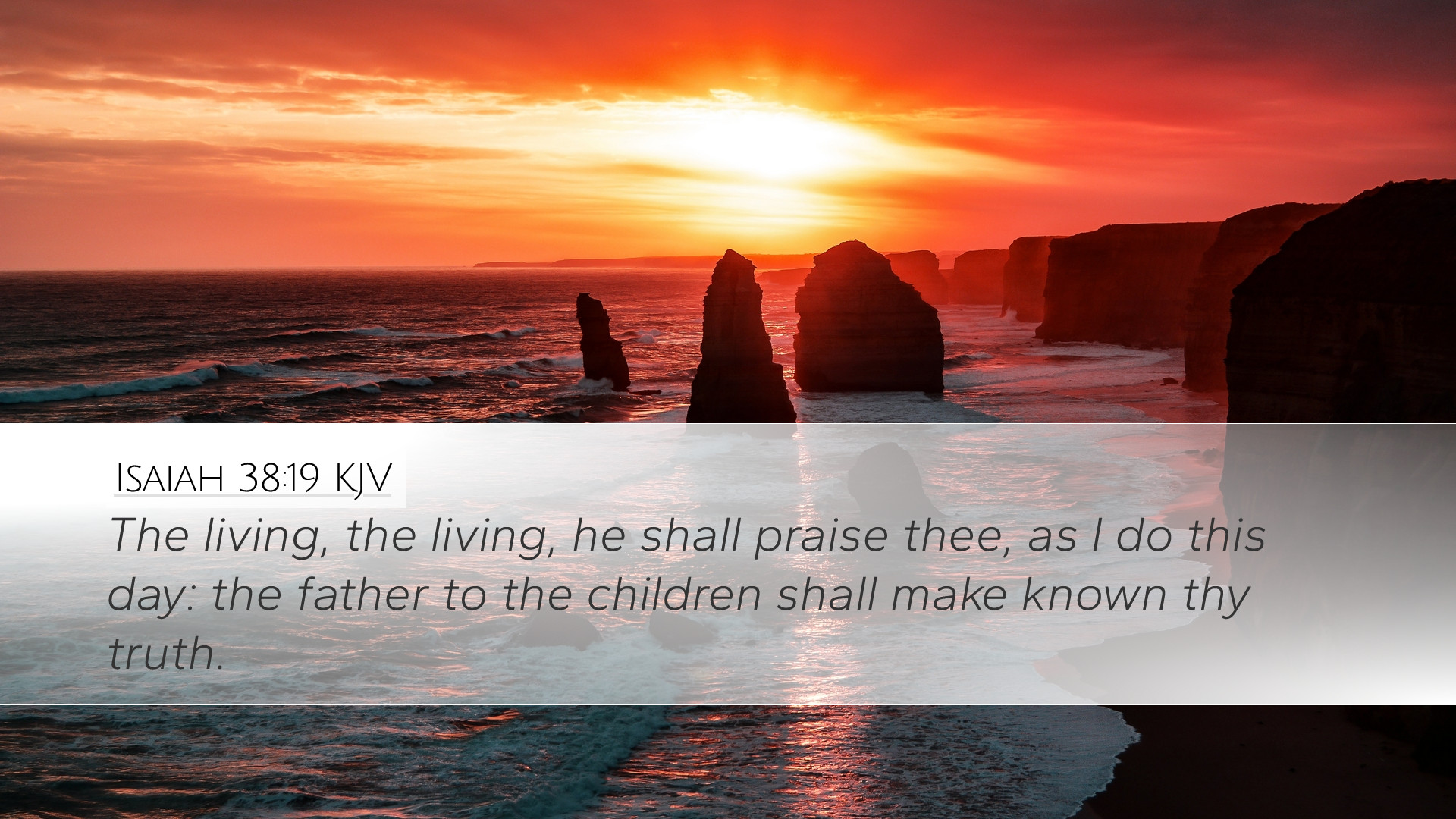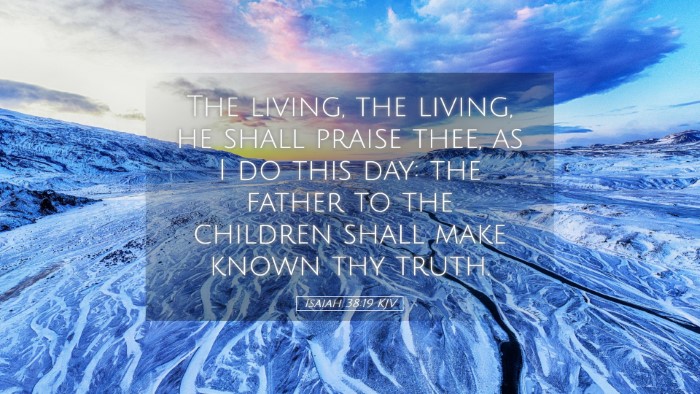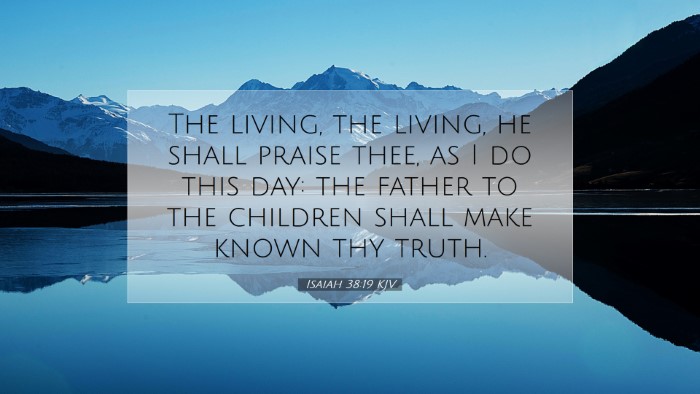Commentary on Isaiah 38:19
Verse Context: Isaiah 38:19 states, "The living, the living, he shall praise thee, as I do this day: the father to the children shall make known thy truth." This verse emerges from a passage where King Hezekiah has been granted healing from his illness, and he reflects on the nature of life, death, and the worship of God.
Interpretative Overview
Isaiah 38:19 encapsulates the theme of testimony and praise in the context of divine healing. It beautifully contrasts the experience of life and death and emphasizes the responsibility of the living—to praise God and pass on His truth to the next generations. This commentary draws from the insights of notable public domain biblical commentators like Matthew Henry, Albert Barnes, and Adam Clarke.
Insights from Matthew Henry
-
The Joy of the Living: Henry highlights that the essence of this verse lies in the joy found in life. He emphasizes that while life and death are ultimate realities, the living experience the opportunity to glorify God. It reflects a deep sentiment of love and gratitude towards God for His mercy and restoration.
-
Transmission of Truth: Hezekiah's declaration that "the father to the children shall make known thy truth" serves as a reminder of the generational nature of faith. Henry points out that it is not just an individual praise but a communal and familial responsivity to declare God’s goodness to future generations.
-
The Nature of Praise: Praise, according to Henry, is not merely vocative; it involves a real understanding and declaration of God’s works. It must stem from personal experience, as Hezekiah’s own healing has become the basis for his exhortation to others to glorify God.
Insights from Albert Barnes
-
The Importance of Life: Barnes underscores that living is a privilege that carries an obligation to recognize God's sovereignty. He suggests that life itself is a testament to God's grace and that being alive presents a distinct opportunity to share His truth with others.
-
Scientific Reflection: Barnes comments on the intellectual implications of this verse. He implies that recognizing life as a divine gift allows one to reflect on both the joy of existence and the sobering reality of mortality, which should drive one towards deeper reverence and worship of God.
-
Teaching the Next Generation: He echoes Henry’s thoughts on the duty of parents and guardians. According to Barnes, the active role of "making known" is not passive. It requires intentionality: teaching by example and instilling a fear of God in the next generation.
Insights from Adam Clarke
-
Personal Response to Healing: Clarke elaborates on the personal aspect of Hezekiah's declaration. He illustrates how profound experiences of healing, like Hezekiah's, should cause one to publicly declare and celebrate the mercies of the Lord.
-
The Divine Order: Clarke asserts that the verse signifies a divine order where praise is expected from the living. He implies that acknowledgment of God's mercies must not only be private but should involve the wider community and family.
-
Continuing the Legacy of Faith: Clarke emphasizes the method of teaching the faith to subsequent generations. He sees this as an imperative task of the godly parent to assert truth and instill reverence for God, thereby fulfilling the mandate given by Hezekiah.
Theological Reflections
When one reflects upon Isaiah 38:19, it invokes a broader discussion on the purpose of life. The verse draws believers into an understanding of how divine healing should lead to a deepened commitment to praising God. This reflects a missional aspect of faith, where one’s personal salvation and healing becomes a testimony that encourages others.
Pastoral Application
This verse invites pastors to encourage congregations to reflect on their own lives and how God's blessings have been manifested. There is a call here to not only experience personal healing but to mobilize that experience into communal worship. Pastors can lead by example in teaching families the importance of making known God's truth to children, thus fostering a lasting legacy of faith.
Conclusion
In conclusion, Isaiah 38:19 serves as a powerful reminder of our calling as the living to worship God and testify of His truths to the upcoming generation. The insights from Matthew Henry, Albert Barnes, and Adam Clarke align and elevate our understanding of this verse as not merely a personal declaration but as a communal imperative—one that cultivates enduring faith across generations. Let all who live declare the glory of the Lord.


